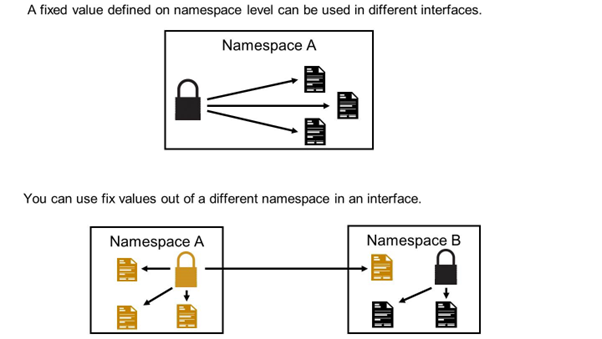Basic Interface Development
You can define a constant value for the check in the field(s) passed to the check. The value has to be entered with %. This makes sense, for example, in the case of a database check, where the same set of data is always relevant.

There are two possibilities:
- Ignore data if check is not successful
- Treat as error if check is not successful
Ignore data if check is not successful
If the check fails, the current line is ignored and processing continues. An information message is added to the application log (depends on the trace level).
Treat as error if check is not successful
If the check fails, processing is stopped at the current line. An error message is posted to the application log.
Fixing of Values:

In AIF, fix values are used in structure and value mappings to assign a constant value to a field in the destination structure. Additionally, they can also be used in checks to refer to a constant value.

You can specify a fixed value via AIF Customizing in the Define Fix Values activity. You have to define a name, description, and the value.

Use a reusable fix value on namespace level and assign it to the structure mapping. This has the advantage that, once the value has to be changed, there is only one place that has to be adapted.
Example
You have several interfaces where customer data (orders, flight bookings, and so on) is processed. Currently, every customer gets a discount of 10%. Therefore, a corresponding reusable fix value is assigned to the interfaces. The discount is then changed so that the customers only get 5% discount. Since you have defined the fix value as a reusable fix value, you can simply change this fix value in one place and all your interfaces use the correct discount.